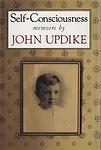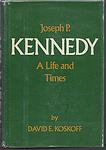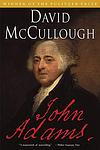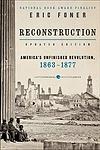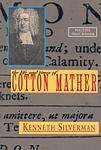The Greatest "Boston, Nonfiction" Books of All Time
Click to learn how this list is calculated.
This list represents a comprehensive and trusted collection of the greatest books. Developed through a specialized algorithm, it brings together 300 'best of' book lists to form a definitive guide to the world's most acclaimed books. For those interested in how these books are chosen, additional details can be found on the rankings page.
Genres
Countries
Date Range
Reading Statistics
Click the button below to see how many of these books you've read!
Download
If you're interested in downloading this list as a CSV file for use in a spreadsheet application, you can easily do so by clicking the button below. Please note that to ensure a manageable file size and faster download, the CSV will include details for only the first 500 books.
Download-
1. The Autobiography of Malcolm X by Alex Haley
This book is an autobiography narrating the life of a renowned African-American activist. It delves into his transformation from a young man involved in criminal activities to becoming one of the most influential voices in the fight against racial inequality in America. The book provides a deep insight into his philosophies, his time in prison, conversion to Islam, his role in the Nation of Islam, his pilgrimage to Mecca, and his eventual split from the Nation. It also addresses his assassination, making it a powerful account of resilience, redemption, and personal growth.
-
2. The Education of Henry Adams by Henry Adams
"The Education of Henry Adams" is an autobiographical account that explores the changes in society and politics during the 19th and 20th century from the perspective of an individual who is both a product and critic of that era. The narrative is structured around the author's self-perceived failure to understand or adapt to these changes, despite his privileged education and social status. The book is a reflection on the author's life, his attempts to make sense of the world around him, and his struggle to reconcile his traditional upbringing with the rapid advancements of the modern world.
-
3. Common Ground by J. Anthony Lukas
"Common Ground" is a non-fiction book that provides an in-depth examination of racial tensions in Boston, Massachusetts during the 1960s and 1970s, primarily focusing on the controversial issue of court-ordered busing to integrate public schools. The narrative follows three families - one African-American, one Irish-American, and one Yankee - to depict the effects of these tensions on the city's different communities. The book also explores the historical, political, and social context of these events, offering a comprehensive analysis of a critical period in American history.
-
4. The Boston Cooking School Cook Book by Fannie Farmer
This iconic culinary reference, first published in the late 19th century, revolutionized American cooking by introducing standardized measurements and a systematic approach to kitchen procedures. It serves as a comprehensive guide to American cuisine, offering a wide array of recipes ranging from simple home fare to more elaborate dishes, along with detailed instructions on techniques, kitchen equipment, and ingredient selection. The book's emphasis on precision and clarity in recipe formulation made it an invaluable resource for both the novice and experienced cook, securing its place as a staple in American kitchens and influencing the way cooking is taught for generations.
-
5. The Great Speeches And Orations Of Daniel Webster by Daniel Webster
This book is a comprehensive collection of the most significant speeches and orations delivered by Daniel Webster, a prominent American statesman and orator of the 19th century. It includes his eloquent legal arguments, Senate speeches, and public addresses that cover a range of topics, from the powers of the federal government to issues of liberty and national unity. Webster's profound impact on American rhetoric and his ability to influence public opinion through his articulate and powerful speaking are showcased in this compilation, providing readers with insight into both his political philosophy and his masterful oratory skills.
-
6. Self-Consciousness by John Updike
"Self-Consciousness" is a memoir that delves into the personal life of a renowned author, exploring his childhood, his relationship with his parents, his struggles with psoriasis and stuttering, as well as his religious beliefs and views on death. The author's reflections on his life are deeply personal, introspective, and filled with a sense of vulnerability, providing an intimate look into his experiences and thought processes. The book offers an insightful exploration of the author's self-consciousness and how it has shaped his life and work.
-
7. Malcolm X: A Life of Reinvention by Manning Marable
This biography provides an in-depth exploration of Malcolm X's life, from his early days of crime and imprisonment to his transformation into one of the most influential African-American leaders. It delves into his complex relationships, his evolving political beliefs, and his controversial views on race and religion. The book also examines his assassination, shedding new light on the circumstances around his death and the conspiracy theories that followed.
-
8. The Patriarch: The Remarkable Life And Turbulent Times Of Joseph P. Kennedy by David E. Koskoff
"The Patriarch" is a biography of Joseph P. Kennedy, the patriarch of the Kennedy family. The book covers Kennedy's life from his early days as a successful businessman to his political career, which included serving as the United States Ambassador to the United Kingdom during World War II. The author also delves into Kennedy's personal life, including his marriage to Rose Fitzgerald Kennedy and his relationships with his children, including President John F. Kennedy and Senator Robert F. Kennedy. The book explores Kennedy's successes and failures, as well as his controversial views on topics such as religion and race.
-
9. John Adams by David McCullough
This biography delves into the life of John Adams, the second president of the United States. The book tells the story of Adams' journey from his childhood in Massachusetts, his education at Harvard, his marriage to Abigail, his role in the Continental Congress, his diplomatic duties in Europe, his presidency, and his retirement. It also explores his complex relationships with contemporaries like George Washington and Thomas Jefferson. The author uses correspondence and diaries to provide an in-depth look at Adams' personal and political life, highlighting his integrity, patriotism, and political foresight.
-
10. The Great Influenza by John Barry
This book provides a comprehensive account of the 1918 flu pandemic, which is considered one of the deadliest in history, claiming the lives of an estimated 50 to 100 million people worldwide. The narrative delves into the origins and spread of the virus, the scientific and medical communities' struggle to understand and combat the disease, and the societal impacts of the pandemic. It also examines the role of government response, public health policies, and the effects on World War I. Through meticulous research, the book highlights the challenges of dealing with an unprecedented global health crisis and the lessons learned that are still relevant today.
-
11. Red Comet: The Short Life And Blazing Art Of Sylvia Plath by Heather L. Clark
"Red Comet" is a comprehensive biography of Sylvia Plath, one of the most iconic poets of the 20th century. The book covers her life from her childhood in Massachusetts to her tragic suicide at the age of 30, exploring her relationships, her struggles with mental illness, and her groundbreaking work in poetry and prose. Through meticulous research and interviews with those who knew Plath, author Heather L. Clark offers a nuanced and illuminating portrait of a complex and brilliant artist.
-
12. Founding Brothers: The Revolutionary Generation by Joseph Ellis
The book provides an in-depth exploration of the American Revolution's aftermath, focusing on the lives of the founding fathers and the complex relationships between them. It delves into six key moments in early American history, including the duel between Aaron Burr and Alexander Hamilton, the secret dinner that determined the site of the nation's capital, George Washington's farewell address, John Adams's presidency, and the correspondence between Thomas Jefferson and Adams. The book emphasizes the crucial role of these individuals in shaping the nation's future and the profound impact of their decisions.
-
13. Book Of Ages by Jill Lepore
"Book of Ages" is a revealing exploration of the life of Jane Franklin, Benjamin Franklin's beloved sister. Despite being a self-taught woman who never attended school, Jane was a passionate reader and writer, maintaining a lifelong correspondence with her famous brother. The book delves into the constraints and hardships Jane faced due to her gender and social class, contrasting her largely unrecognized life with her brother's legendary status. Through Jane's letters and the author's meticulous research, the narrative provides a poignant look at the struggles of women in the 18th century and highlights the significant yet often overlooked contributions they made to America's early history.
-
14. Charles Sumner and the Coming of the Civil War by David Donald
This book provides an in-depth look at the life and political career of Charles Sumner, a prominent abolitionist and U.S. Senator during the years leading up to the American Civil War. It explores Sumner's passionate advocacy for the abolition of slavery, his role in the formation of the Republican party, and his influence on American politics during this turbulent period in history. The book also includes a detailed account of the infamous incident in which Sumner was physically attacked on the Senate floor by a pro-slavery congressman, an event that further escalated tensions between the North and South.
-
15. Paul Revere and the World He Lived In by Esther Forbes
"Paul Revere and the World He Lived In" is a comprehensive biography that explores the life and times of Paul Revere, a key figure in the American Revolutionary War. The book delves into his career as a silversmith, his role as a courier and patriot, and his participation in the infamous midnight ride. The narrative also gives readers a detailed insight into the social, political, and economic landscape of 18th century Boston, thereby providing a vivid image of the world Revere inhabited.
-
16. The Life and Times of Cotton Mather by Kenneth Silverman
This biography delves into the life of Cotton Mather, a prominent figure in colonial New England's Puritan society. It explores his role in the infamous Salem witch trials, his efforts to reconcile science and religion, and his deep-seated belief in the supernatural. The book also examines Mather's personal life, highlighting his relationships, health struggles, and his own internal conflicts between faith and reason. It provides an in-depth look at a man often seen as a symbol of the rigid and superstitious early American mindset.
Reading Statistics
Click the button below to see how many of these books you've read!
Download
If you're interested in downloading this list as a CSV file for use in a spreadsheet application, you can easily do so by clicking the button below. Please note that to ensure a manageable file size and faster download, the CSV will include details for only the first 500 books.
Download




